When Kevin Browne was in high school, he declared himself an atheist.
This wasn’t always the case. As a young child growing up in East Belleville, Illinois, Kevin’s family had gone to a Baptist church.
“It was kind of a common thing of the day. Everybody went to church,” he says. “But I don’t know that I really knew what the gospel was.”
When Kevin’s older brother wanted to stop going to church, their parents didn’t try to stop him. By the time Kevin was in middle school, his whole family had stopped attending church. He started reading his brother’s philosophy books, and in his high school philosophy class, he argued that God didn’t exist.
After Kevin graduated high school, he joined the Air Force and wound up stationed in California. One night, his friend Jerry invited him to see A Thief in the Night—a movie about the end times.
“I don’t believe in God,” Kevin told him. This led to a long discussion. Kevin asked Jerry some pretty tough questions, many of which Jerry couldn’t answer. But at the end of the conversation, Jerry said, “I’ll pray for you.”
Kevin was skeptical. “I thought, ‘You go right ahead, Jerry,’” he remembers. “‘It’s not going to do you any good, but you can go ahead and pray for me all you like.’”
But a few weeks after that, Kevin couldn’t shake some of the questions the conversation had brought up. He started doing some soul searching and talking to Jerry more.
“There was something about him,” Kevin recalls. “There was something that was bugging me. And I felt guilt. I felt shame. Now, I would say it was the Holy Spirit basically convicting me of my sin.”
He started going to church with Jerry. Eventually, he accepted Christ and got baptized by the chaplain on the Air Force base.
Later, another friend from the Air Force asked Kevin to sing at his wedding. He asked if Kevin would be willing to sing along with another friend of the couple. That second singer was named Debbie. She and Kevin started dating and got married about a year later.
After Kevin finished his time in the Air Force, he and Debbie moved to Tennessee, where he studied History, and later German, at the University of Tennessee. He also got certified to teach, but he couldn’t find a job in Tennessee. During a visit to see Debbie’s grandparents in Florida, he started applying to schools in the area. The couple and their three kids moved to Florida shortly after that.
In every place they had lived, Kevin and Debbie had attended non-denominational, charismatic-leaning churches. They originally found a similar church in Merritt Island, but after a few years, some leadership changes prompted them to look elsewhere. They had started reading Francis Schaeffer and a few other writers and getting interested in Reformed theology, so they decided to look for a PCA church. They first came to Christ Community in December of 1994, and were drawn in by the teaching. As musicians, they also enjoyed the corporate worship.
“We liked the way they mixed the hymns and worship songs and it wasn’t all just worship songs,” Kevin says. Pretty soon, they were helping lead worship.
Music has been a big part of Kevin’s life since he started playing guitar as a teenager. He loved listening to rock and folk music, and eventually started writing his own songs.
“Now, in retrospect, I would look back and say music is a gift from God,” he says. “God gave me the ability to play music. And I enjoy it. It gives me pleasure when people enjoy what I play.”
Music is also a way for him to talk about and to God. He mentions his song “Bread of the World,” which was inspired by Francis Schaeffer’s writings about failed revolutions. “Bread of the world, break for me,” he sings in the chorus, “only mercy and light can help me see.”
“The only thing that can save me is mercy and grace,” he says, explaining the meaning behind the song, “because dead men don’t save themselves.”
Sometimes, he gets inspiration for songs from his students at Astronaut High School—where he teaches German. Some of these songs tend to be more “silly,” but he takes his role as a teacher and influencer seriously.
“I’m teaching because I want [students] to gain knowledge, but I also want them to be aware of the world around them,” he says. “I tell kids, ‘You don’t have to believe what I believe. But you need to think about why you believe what you believe.’
“I want them understand that we should, as humans, especially in our society today, be able to have a civil discourse.”
In some ways, things have come full circle. When Kevin was in high school, he argued against God’s very existence, but God used civil discourse and self-examination to draw Kevin to Himself. Now he’s encouraging high schoolers to think more deeply about their own beliefs.
He is quick to admit that following God hasn’t been easy.
“The sanctification process is really hard,” he says. “I’ve continued over the years, as I’ve gotten older, to see that God is a very merciful and gracious God. And I continue to see what a big sinner I am.”
It’s easy to compare yourself to other people and think you’re doing pretty well, he says. “But when I look vertically and I see the gap between myself and God, I know that it’s only by the grace of God that am I saved, that I’m redeemed.”
“The longer I’ve been a Christian, the more I see God’s grace.”


